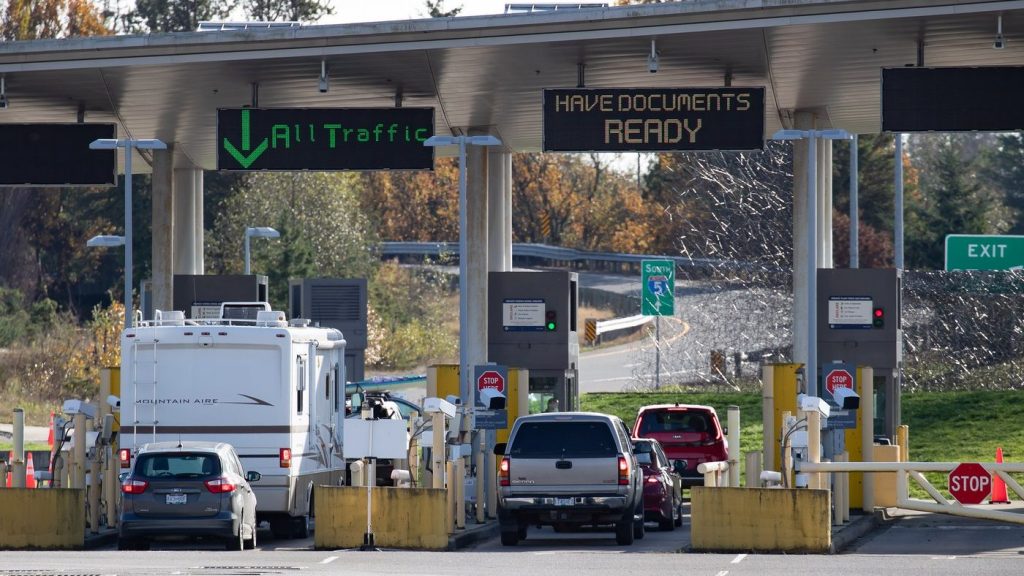Legault says he knows parents may worry about vaccinating kids, offers reassurances

Posted November 23, 2021 6:51 pm.
Last Updated November 23, 2021 6:59 pm.
Quebec Premier Francois Legault spoke to parents directly on Tuesday evening, telling them he understood they may have worries about vaccinating their kids against the novel coronavirus but offering reassurances that the shots are safe.
Vaccination for children aged five to 11 – the latest cohort made eligible by Health Canada – will begin Wednesday at mass vaccination centres and next week in schools, Legault told a news conference. The two doses of Pfizer-BioNTech vaccine will be given eight weeks apart, the premier said.
“I am putting myself in the position of parents and I can imagine it can bring certain concerns,” he said. “I want to reassure parents.”
It’s not for nothing, he said, that the COVID-19 vaccine took longer to be approved for young children compared to adults, Legault added. Additional tests have been done to ensure the vaccine is safe for young people, who will get a dose about one-third the size as the one approved for adults, he said.
“The scientists say it’s safe, but it’s normal that parents are worried.”
Earlier on Tuesday, Quebec opened booking appointments for COVID-19 vaccinations for children aged five to 11. Legault said that by mid-afternoon, about 80,000 appointments had been booked.
Legault said parents should consider vaccinating their kids because even though they are less at risk than adults to get seriously ill from COVID-19, some children have ended up in hospital and others have had long-lasting effects, he said without giving statistics.
Another reason children should be vaccinated, he said, is to avoid closing classrooms. The more children are vaccinated, the fewer outbreaks there will be in schools, Legault added.
Vaccinated children will also be safer around their grandparents during the holidays compared with non-vaccinated kids, Legault said. “Holding grandma and grandpa in your arms, not having to worry about giving COVID-19 to mom and dad _ that has a certain value to children,” he said.
RELATED:
- Plane carrying doses of COVID-19 vaccines for kids touches down in Canada
- Quebec hopes to have kids inoculated with first dose of COVID-19 vaccine by Christmas
- Montreal kids react to soon getting the COVID-19 vaccine
Health Canada last week authorized the Pfizer-BioNTech vaccine for the younger age group, and Quebec health officials have said they’re aiming to administer first doses to about 650,000 eligible children in the province by Christmas.
Dr. Olivier Drouin, a pediatrician at Montreal’s Sainte-Justine children’s hospital, said he believes the vaccination of children aged five through 11 will protect individual children from COVID-19 and reduce the spread of the disease among the general public.
While children who get COVID-19 tend to be less severely affected than older people, that doesn’t mean they’re not affected at all, Drouin said in an interview Tuesday. A few hundred children have been hospitalized due to COVID-19 in Canada and there have been hundreds of cases of children suffering complications from the disease.
“Those things do exist, they’re severe. They’re now preventable with the vaccine, and if we can prevent even a few of those hospitalizations, I think it’s worth taking the shots,” he said.
Drouin said concerns about heart inflammation linked to mRNA vaccines are legitimate, but he said those conditions are extremely rare, with around 10 to 30 cases per 100,000 doses given, and in the far majority of recorded cases, people who develop heart conditions are hospitalized for one or two days and suffer no long-term effects.
Dr. Jesse Papenburg, a pediatric infectious disease specialist at the Montreal Children’s Hospital, said younger children appear less likely to suffer from those rare side-effects than older adolescents, and he said he expects that the lower dose of vaccine that will be given to children, as well as the increased interval between doses, will further reduce the risk.
Papenburg said that while vaccination will offer protection from disease for children, it will also help reduce community transmission.
Children under 12 currently account for one-quarter of all COVID-19 infections in Canada, despite accounting for 12 per cent of the population, he said in an interview Tuesday. There will also be other benefits, including less disruption of school and other activities, as well as protecting vulnerable family members.
“Vaccinating this part of the population will allow them to safely go back to all of the social activities that are so important to their development, their well-being and their mental health, in the safest way possible,” he said.
The province intends to use its mass vaccination centres to allow parents to accompany their children as well as providing vaccinations at schools.








